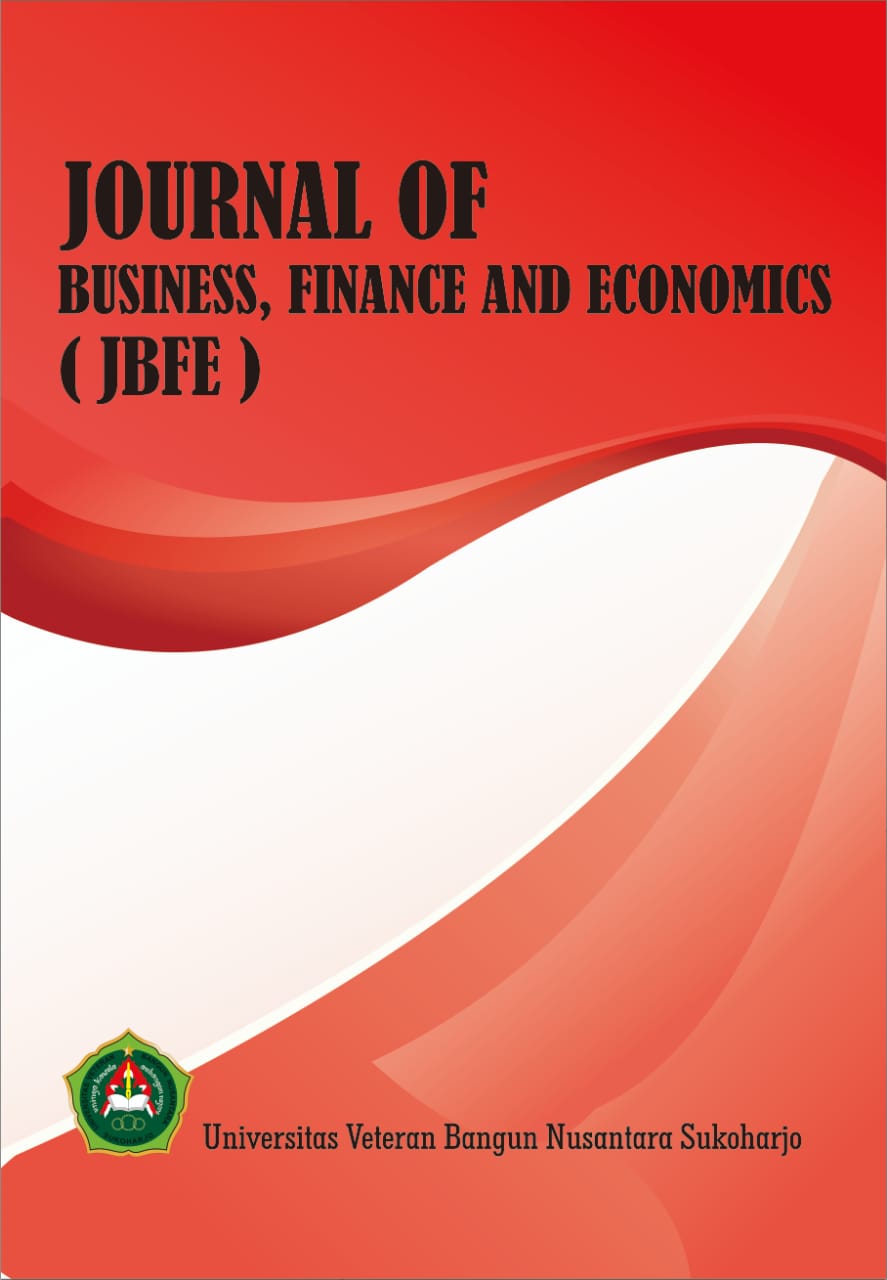Pemikiran Islam Kontemporer (Muhammad Baqir Al-Sadr, Ibrahim Umar Vadillo, M. Umer Chapra)
DOI:
https://doi.org/10.32585/jbfe.v6i1.6667Keywords:
Economic Justice, Ibrahim Umar Vadillo, Islamic Monetary, M. Umer Chapra, Muhammad Baqir al-SadrAbstract
This research discusses the thoughts of three contemporary Islamic figures—Muhammad Baqir al-Sadr, Ibrahim Umar Vadillo, and M. Umer Chapra—in the field of Islamic economics. Muhammad Baqir al-Sadr offers an economic system based on monotheism with an emphasis on fair distribution of wealth and multi-level ownership as an alternative to capitalism and socialism. Ibrahim Umar Vadillo criticizes the use of paper money and advocates the re-implementation of the gold dinar and silver dirham to create monetary stability based on intrinsic value. Meanwhile, M. Umer Chapra develops an Islamic economic approach based on maqashid sharia to realize welfare and social justice, and criticizes the materialistic conventional economy. The thoughts of these three figures not only offer solutions to global economic inequality, but are also relevant to be applied in efforts to build a more just and sustainable economic system in the modern era.
Downloads
References
Adolph, R. (2016). No title. 1–23.
Al-Sadr, M. B. (2021). Jurnal Al Mashaadir, 2(2), 16–30.
Antonio, M. S. (2008). Bank syariah dari teori ke praktek (Cet. 12). Gema Insani.
Aryu Inayati, A. (2013). Pemikiran ekonomi Islam M. Umer Chapra. Profetika: Jurnal Studi Islam, 14(2), 164–176.
Asia, N. (2021). Artikel aliran ekonomi Islam kontemporer. Jurnal Ekonomi dan Bisnis Islam, 13(1), 163–164.
Astuti, R. T. (2020). Ekonomi berkeadilan: Konsep distribusi ekonomi Islam perspektif Muhammad Baqir Al-Sadr. IAIN Pare-Pare, 4(1), 20.
Azwar, R., & Dalimunthe, S. (2024). Analisis pemikiran ekonomi Islam Muhammad Baqir Sadr: Studi literatur sistematis terhadap konsep dan implementasinya. Jurnal Ekonomi dan Keuangan Islam, 24(2), 220–227.
Chapra, U. M. (1992). Islam and the economic challenge. The Islamic Foundation & The International Institute of Islamic Thought.
Donohue, J. J., & Esposito, J. L. (1989). Islam pembaharuan: Ensiklopedi masalah-masalah (Drs. Machnun Husein, Trans.; Cet. II). CV. Rajawali. (Original work published Islam in Transition: Muslim Perspectives)
Fauzi, A. (2010). Pemikiran M. Umer Chapra tentang instrumen kebijakan moneter dan peluang implementasinya di Indonesia [Skripsi tidak diterbitkan]. UIN Syarif Hidayatullah Jakarta.
Hamzah, A. (2021). Pemikiran ekonomi Islam kontemporer: Kajian teoritis Muhammad Abdul Mannan tentang distribusi. Al-Qisthu: Jurnal Kajian Ilmu-Ilmu Hukum, 18(1), 22–28. https://doi.org/10.32694/qst.v18i1.801
Hasri, H. (2016). Studi kritis pemikiran pemikir Islam kontemporer. Kelola: Journal of Islamic Education Management, 1(1), 33–47. https://doi.org/10.24256/kelola.v1i1.427
Irsyad, F. A., & Arif, M. (2024). The concept of dinar and dirham currency in perspective Ibrahim Umar Vadillo. Jurnal Ekonomi Islam, 1, 1–11.
Jaya, R. I., & Arif, M. (2024). Pemikiran ekonomi Islam pada era Muhammad Baqir Al-Sadr (1935–1980). Journal of Student Development Informatics Management (JoSDIM), 4(1), 37–48.
Journal, I., & Shariah, O. (2018). Satanic finance dalam perbankan syariah. Jurnal Keuangan Syariah, 2(1), 20–44.
Ke-indonesia-an, S. K. (2003). Pemikiran Islam. Al-Fikr, 15(2), 271–284.
Muslih, M. (2012). Pemikiran Islam kontemporer, antara mode pemikiran dan model pembacaan. Tsaqafah, 8(2), 347. https://doi.org/10.21111/tsaqafah.v8i2.28
Muthia Hafsari, H. (2023). Relevansi pemikiran Muhammad Baqir As-Sadr terhadap peran negara di dalam pembangunan sistem ekonomi yang berkeadilan. Modeling, 10, 663–673.
Nazwa, *, Alkhansa, A., Muhammad, (, Al-Sadr, B., Vadillo, I. U., Umer, D. M., Nazwa, C.), Asnita Barasa, N., Pramanda, A. D., Heriyadi, R., Bintang, F. A., Islam, U., Sumatera, N., Alamat, U., William, J., Ps, I. V., & Estate, M. (2024). Pemikiran ekonomi Islam kontemporer. Journal of Islamic Economics and Finance, 2, 35–44. https://doi.org/10.59841/jureksi.v2i1.699
Ummah, M. S. (2019). No title. Sustainability (Switzerland), 11(1), 1–14. http://dx.doi.org/10.1016/j.regsciurbeco.2008.06.005
Downloads
Published
How to Cite
Issue
Section
License
Copyright (c) 2025 Journal of Business, Finance, and Economics (JBFE)

This work is licensed under a Creative Commons Attribution-ShareAlike 4.0 International License.
Authors who publish with the Journal Of Business, Finance, and Economics (JBFE) agree to the following terms:
- Authors retain copyright and grant the journal the right of first publication with the work simultaneously licensed under a Creative Commons Attribution License (CC BY-SA 4.0) that allows others to share the work with an acknowledgment of the work's authorship and initial publication in this journal.
- Authors are able to enter into separate, additional contractual arrangements for the non-exclusive distribution of the journal's published version of the work (e.g., post it to an institutional repository or publish it in a book), with an acknowledgment of its initial publication in this journal.
- Authors are permitted and encouraged to post their work online (e.g., in institutional repositories or on their website) prior to and during the submission process, as it can lead to productive exchanges, as well as earlier and greater citation of published work.














